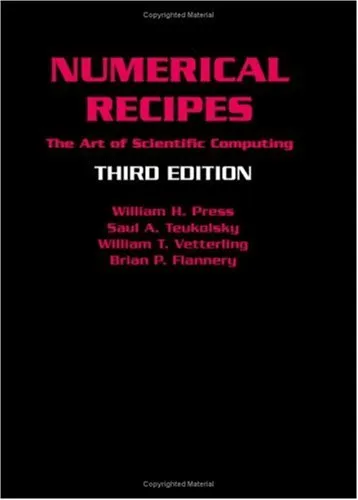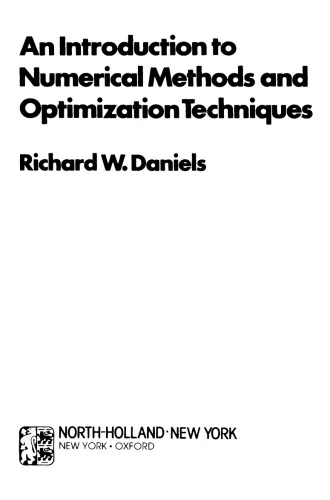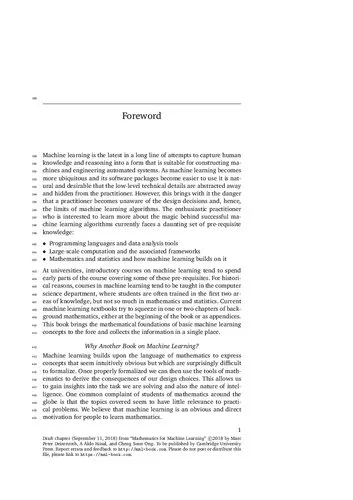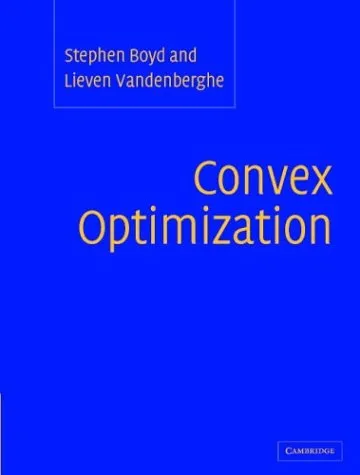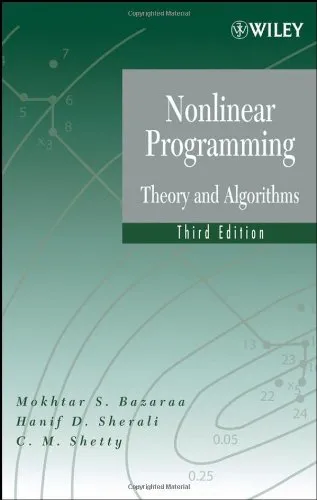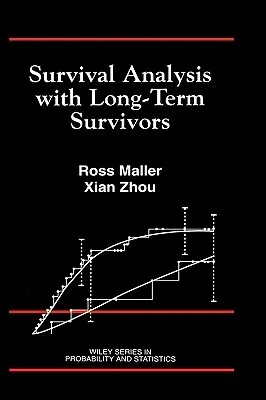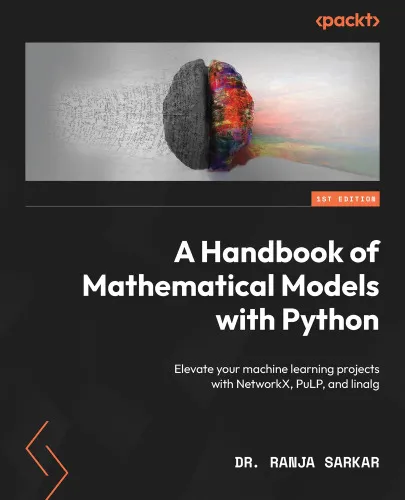Mathematical Programming
4.0
Reviews from our users

You Can Ask your questions from this book's AI after Login
Each download or ask from book AI costs 2 points. To earn more free points, please visit the Points Guide Page and complete some valuable actions.Related Refrences:
Analytical Summary
The book Mathematical Programmingpp.167—182 by M. C. Biggs and M. A. Laughton represents a concentrated section of advanced scholarship on mathematical programming, focused on pages 167 to 182 of the larger work. This excerpt examines the interplay of optimization theory, formal mathematical formulations, and practical problem-solving strategies for complex decision-making scenarios.
Covering important aspects of optimization methods and linear programming theory, the authors delve into problem definition, constraints formulation, and objective function modeling. They approach these topics with precision, offering clear formal notation and step-by-step derivations to illustrate how theoretical constructs can be applied in real-world engineering and operational research contexts.
With an authoritative voice grounded in years of academic contribution, Biggs and Laughton guide readers through both abstract mathematical landscapes and tangible applications. The coverage from pp.167—182 demonstrates their commitment to exactness, helping the reader understand how algorithms are both constructed and justified within formal frameworks.
Key Takeaways
This section of the book offers readers several core insights that are directly relevant to the study and use of mathematical programming in professional and academic environments.
First, it reinforces a structured approach to defining optimization problems, ensuring variables, constraints, and objectives are precisely specified. Second, it presents methods for converting real-world scenarios into mathematical models, bridging theory and practice. Third, the authors highlight the central role of sensitivity analysis, enabling the reader to anticipate how changes in input parameters affect optimal solutions. Fourth, computational complexity considerations are explained, encouraging efficiency in algorithm selection.
Memorable Quotes
“Optimization is not merely about finding a solution; it is about finding the best possible solution within defined constraints.” Unknown
“Mathematical programming transforms complexity into clarity through structured formulations.” Unknown
“Every variable in a model tells part of a story; together they narrate the solution space.” Unknown
Why This Book Matters
For serious students of optimization methods and practitioners of operations research, Mathematical Programmingpp.167—182 offers a deep dive into foundational techniques essential for solving practical challenges.
The authors’ ability to link mathematical formalism to applicable methodologies makes this work critical for engineers, data scientists, economists, and research analysts. Even though the specific publication year is “Information unavailable” due to no reliable public source, the text’s relevance transcends date, underscoring universal principles in optimization and modeling.
The focused coverage of linear programming theory within this excerpt is especially important for readers seeking to master algorithmic approaches without losing sight of interpretability and theoretical soundness.
Inspiring Conclusion
In closing, Mathematical Programmingpp.167—182 stands as a precise, intellectually engaging segment that continues to resonate with anyone involved in the science of optimization.
Whether your interest lies in the elegance of linear programming theory or in the pragmatic concerns of optimization methods, this work offers a framework for thinking rigorously and acting effectively. The clarity and discipline evidenced in pp.167—182 invite you to explore, discuss, and apply these ideas in your own research or professional projects. Dive into the text, share your insights with peers, and expand the ongoing conversation around the art and science of mathematical programming.
Free Direct Download
You Can Download this book after Login
Accessing books through legal platforms and public libraries not only supports the rights of authors and publishers but also contributes to the sustainability of reading culture. Before downloading, please take a moment to consider these options.
Find this book on other platforms:
WorldCat helps you find books in libraries worldwide.
See ratings, reviews, and discussions on Goodreads.
Find and buy rare or used books on AbeBooks.
1003
بازدید4.0
امتیاز0
نظر98%
رضایتReviews:
4.0
Based on 0 users review
Questions & Answers
Ask questions about this book or help others by answering
No questions yet. Be the first to ask!

